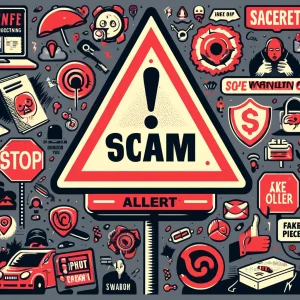In a key move towards bolstering the virtual asset landscape, South Korea’s Financial Services Commission (FSC) has announced specific regulations regarding the enactment of the Virtual Asset User Protection Act. In the meantime, planned to come into effect on July 19, 2024, these regulations aim to ensure a secure environment for users and support integrity in the virtual asset market.
South Korea’s FSC moves for proper crypto regulation
Local media agencies reported on December 10 that the FSC intends to issue legislative guidance on the crypto industry. Although NFTs were explicitly excluded, the regulator acknowledged the possibility of exceptions.
As per the report, tokens that are issued in significant quantities and operate as a payment method despite being classified as NFTs may still be incorporated into the virtual asset classification. The assets may, therefore, qualify for interest when deposited into exchanges.
For South Korea, the laws, which include the Enforcement Decree of the Virtual Asset User Protection Act and the Virtual Asset Industry Supervision Regulations, outline specific steps for improved user safety and market stability.
Meanwhile, the regulations require the designation of a trusted management institution and emphasize the separation of customer deposits from proprietary assets. The Enforcement Decree, in particular, designates banks as deposit management organizations, emphasizing public trust and financial stability.
The regulations prioritize user asset security and mandate specific ways for maintaining and using user deposits with rigorous attention to detail.
Aside from defining virtual assets, South Korea’s government also decided how virtual asset companies should handle customer deposits. According to the notice, exchanges must separate user deposits and their own assets and entrust them to a bank. Furthermore, 80% of the money must be stored in a cold wallet.
NFTs and CBDCs are exempt from the regulations
In the press release, South Korea’s FSC expanded the list of organizations immune from the Virtual Asset User Protection Act, including deposit tokens connected to Central Bank Digital Currency (CBDC) and non-fungible tokens (NFTs).
This strategic effort, in particular, intends to ensure the law’s applicability while accepting growing aspects of the virtual asset landscape.
Furthermore, in order to strengthen security measures, the regulations require that more than 80% of users’ virtual assets be maintained in cold wallets. This is a higher requirement than the existing 70%, and it aims to protect user assets from crypto scams, hacking, and other cyber risks.
South Korea has been hardening its crypto regulations for a while now. Earlier in December, the country’s financial officials requested users to report unlicensed cryptocurrency exchanges operating in the region.
The effort was overseen by the Digital Asset Exchange Association and the South Korean Financial Intelligence Unit.
Furthermore, the Enforcement Decree recognizes banks as deposit-taking organizations, highlighting public trust and financial stability. The regulations prioritize user asset security and mandate specific ways for maintaining and using user deposits with rigorous attention to detail.
And the bottom line?
In anticipation of possible crises, virtual asset business operators are required by regulation to maintain reserves or enroll in insurance or mutual aid programs. With the overarching objective of fortifying the virtual asset ecosystem in mind, this proactive strategy seeks to ensure accountability for incidents such as hacking and computer malfunctions.
Constraints regarding the disclosure of confidential critical information are outlined in the regulations, which are tailored to the particularities of the virtual asset market in an effort to preserve market integrity.
Moreover, proprietors of virtual asset businesses are expressly prohibited by the regulations from arbitrarily and without justification blocking deposits and withdrawals. With a focus on safeguarding users against unwarranted disruptions and promoting user empowerment, exceptions are rigorously delineated.
In the interim, virtual asset exchanges are required to assiduously monitor anomalous transactions in order to foster the development of a vigilant ecosystem. The prompt notification of regulatory authorities regarding suspected unjust trade practices demonstrates a dedication to safeguarding user interests and maintaining market integrity.





